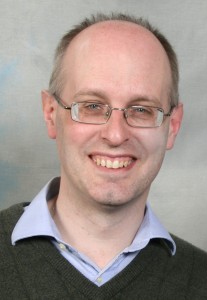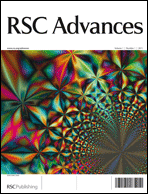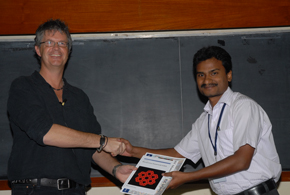Professor Mike Ward, Editorial Board Chair for RSC Advances, talks about his career, the challenges facing UK universities, and his plans for the future.
 When you began studying chemistry at university, did you ever imagine you would be head of a chemistry department one day? How did you get there?
When you began studying chemistry at university, did you ever imagine you would be head of a chemistry department one day? How did you get there?
Not remotely. I actually started by studying Natural Sciences at Cambridge with the firm intention of specialising in physics in year 2. However Cambridge was full of students who fancied themselves as future physicists, so the first year physics part of the Natural Sciences tripos was made deliberately tough to scare off the faint- hearted, which included me. In contrast I found the chemistry fairly straightforward as I had had an excellent A-level chemistry teacher at school who went way beyond the confines of the syllabus, so I took the line of least resistance and specialised in chemistry from year 2.
I always hoped to go into academic research of some sort via a PhD, even before I started university, and decided in my final year that coordination chemistry (with Ed Constable) was a good way to combine organic and inorganic chemistry which I was torn between. The PhD turned out well as we stumbled across some of the first examples of self-assembled double helicate complexes, and I have retained an interest in self-assembly ever since. After my PhD I was fortunate enough to get a Royal Society post-doctoral fellowship to work in Strasbourg for a year in Jean-Pierre Sauvage’s lab, which was a memorable and formative experience. Then I got a lectureship position in Bristol, starting in 1990, associated with the appointment of Jon McCleverty as the new head of inorganic chemistry; and Jon and I had a very fruitful partnership for 13 years until his retirement in 2003 by which time I had made it through the ranks to a personal chair.
I moved to Sheffield in 2003 which was a difficult decision – Bristol chemistry is a splendid department and I was very happy there – but took the plunge partly for family reasons and partly because I felt that the time was right for a change. A much younger age profile in Sheffield meant that I was suddenly more senior and I became head of the inorganic chemistry section in 2004 and then, having not done anything disastrously wrong, became head of department in 2007.
What do you find are the biggest challenges facing university chemistry departments now?
There are two problems in concert. Firstly, there are the huge changes being imposed on higher education by the government, which cannot fail to have substantial (and as yet unknown) effects on the pattern of student applications and the financial viability of many departments and even whole institutions. Secondly, we have the change in the way that research funding will be allocated by research councils, with a much greater emphasis on supporting a small number of people whom they deem to be ‘leaders’, the requirement for more or less immediate ‘societal impact’ (it took half a century from the first demonstration of the NMR effect to MRI scanners…), and the focusing of funding on a small number of politically-decided strategic priorities. To have such huge uncertainties in both aspects of our income generation – student applications and research grant allocations – is unprecedented and many colleagues are seriously worried about what the future holds for them, for the UK research base, and for the higher education sector as a whole.
What do you hope will be special about Dalton Discussion 13 in 2012?
The Dalton Discussion meeting next year (in Sheffield) will focus on photophysical properties of metal complexes. The subject matter itself is not unusual – indeed it is very timely and therefore regularly crops up at international meetings – but we have already had acceptances from all of our first-choice keynote and invited speakers so the quality of the meeting is going to be really outstanding.
As chair of the RSC Advances Editorial Board what will be unique about this journal?
That depends as much on the contributors as on the RSC! The plan is for RSC Advances to attract new authors as well as papers in new fields. I cannot do better than re-state what was in the original press release: ‘Research in the chemical sciences is expanding into new fields that were unknown a few years ago, and high quality scientific contributions come from more and more parts of the world; in response the RSC is expanding its portfolio of journals to keep pace with these new developments. RSC Advances will have a key role to play in attracting publications in new fields of research and from all parts of the world, allowing the RSC to maintain its position as one of the leading publishers of high-impact chemistry journals.’
(Reproduced from RSC News, May 2011)
Keep in touch with the latest news on RSC Advances by signing up for the newsletter.
Comments Off on Introducing Mike Ward
 The first Advance Articles of our new journal RSC Advances are now published online – just 16 weeks since the news of the launch was released!
The first Advance Articles of our new journal RSC Advances are now published online – just 16 weeks since the news of the launch was released!













